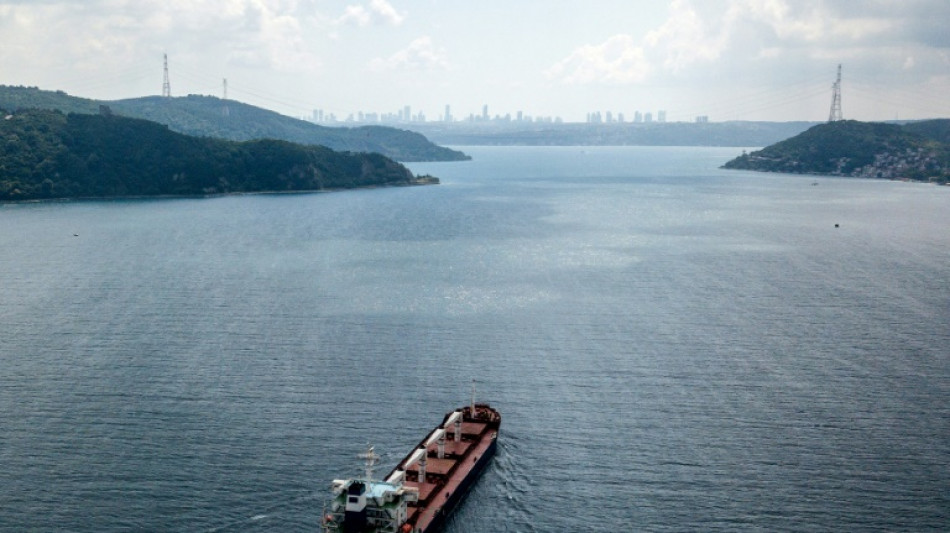

Putin says Ukraine grain deal mostly helping rich EU
Russian President Vladimir Putin said Wednesday that "almost all" the Ukrainian grain shipped under a UN-backed deal to ease a global food crisis was reaching rich European nations and accused the West of deceiving developing countries.
Data compiled by a joint centre in Istanbul monitoring the July agreement showed slightly more than a third of the grain delivered to European countries and another 20 percent arriving in Turkey.
It also showed 30 percent reaching "low and lower-middle income countries" across the world.
More shipments are expected to start arriving in famine-stricken parts of Africa and the Middle East under the UN World Food Programme whose implementation is just getting underway.
But Moscow has voiced growing frustration with how the agreement was being applied.
An amendment to the deal also allowed Russia to get open access to fertiliser shipments and have some economic sanctions lifted to allow it to export its own grain.
The UN hailed the deal as the world's best chance to ease an acute global food crisis stoked by the Black Sea grain blockade.
But Putin said its current implementation was helping richer European countries at the expense of the developing world.
"Almost all the grain exported from Ukraine is sent not to the poorest developing countries, but to EU countries," he told an economic forum in Russia's Pacific port of Vladivostok.
Both Ukraine and Russia are two of the biggest exporters of wheat and other grain.
- 'Colonialists' -
Putin accused European countries of acting as "colonialists" and said they "once again simply deceived developing countries".
"With this approach, the scale of food problems in the world will only grow," Putin said.
"Maybe we should think about limiting the export of grain and other produce along this route?" Putin asked.
The July agreement brokered with the help of Turkey is valid for 120 days and may be automatically renewed without further negotiations.
But it requires both Moscow and Kyiv to sign off on an extension.
Data compiled as of Wednesday and released to AFP showed Turkey receiving the largest share of the grain -- 20 percent -- followed by Spain (15 percent) and Egypt (10 percent).
But much of the grain that reaches Turkey and some other destinations is then re-sold under commercial agreements not monitored by the Istanbul centre.
A separate famine relief effort spearheaded by the UN's World Food Programme (WFP) is focused on delivering wheat and maize to Africa and other parts of the world suffering shortages.
The first UN-chartered vessel docked in Djibouti on August 30 as part of a response to the drought gripping the Horn of Africa.
A second UN ship reached Turkey last week. The wheat is now being milled into flour and will then be loaded onto a new vessel and sent to Yemen at an undisclosed date.
"A third WFP-chartered vessel is today anchored at Istanbul planning to head to Ukraine and collect a further shipment of wheat," the Istanbul centre said.
Putin said he hoped "the situation will improve somehow".
"We will continue insisting that this whole affair with the export of grain and our food be directed primarily to developing markets," he said.
(H.Duplantier--LPdF)




